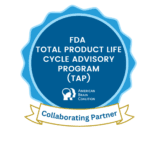Genetic mechanism of conserved ancestral haplotype in SCA10
The purpose of this study is to examine the disease-causing mechanism of an inherited neurological disorder called Spinocerebellar Ataxia Type 10 (SCA10). The study is being done to determine the relationship between SCA10 and the DNA variation at a specific location on a chromosome and to determine its disease causing mechanism in SCA10.
ClinicalTrials.gov Link: clinicaltrials.gov/ct2/show/NCT04495426
About the Study
Eligible Ataxia Types
SCA10
Type of Study
Research Study
Clinical Trial Phase
N/A
Age Range
Adult 18+
Study Start Date
09/15/2020
Estimated Completion Date
12/31/2023
IRB Approval #
PRO000022772
Location(s)
Houston Methodist Hospital TMC
6560 Fannin Street, Suite 802
Houston, TX
Contact Information
Valerie Flores
vvflores@houstonmethodist.org
Phone: 713-363-7394
Erika Espinoza
eespinoza2@houstonmethodist.org
Phone: 713-363-7394
What does participation in the study entail?
You will be asked to be in the study for about 18 months. The study will involve collection of blood and skin tissues to obtain biological and genetic information. The genetic information is coded by your DNA, the molecule containing genetic codes that coordinate the operation and development of all living beings. The biological information will be studied in cell cultue prepared from the skin biopsy. You will also be asked to undergo non-invasive procedures (EEG and MRI). Additionally, there will standard written questionnaires to evaluate your ataxia and overall impression of the disease and quality of life.
What are the potential benefits for participants?
There are no immediate benefits to you for participating in this study. However information obtained from this research is expected to improve our genetic knowledge of SCA10 which may become important in decreasing the frequency of SCA10 in population.
What are the potential risks for participants?
The most likely risks to you are falls and resultant injuries during evaluations, and bruises at puncture site after blood drawing, and bleeding and infection at the skin biopsy site. Every effort will be taken to minimize these risks as described in later in this document.
Is there financial compensation?
No.
Is there travel reimbursement?
Yes. Travel reimbursement may be issued as needed.
Who is eligible?
We will recruit symptomatic participants, premanifest carriers and related non-carriers (at-risk siblings without a SCA10 expansion) members of SCA10 families who have been diagnosed with Spinocerebellar ataxia type 10 (SCA10) or those whose first-degree relative has a molecular diagnosis or SCA10.
View Other Research Opportunities
Further Development and Validation of the Cerebellar Neuropsychiatric Rating Scale (CNRS)
There are many scales that assess the disruption of drive, motivation, mood, impulsivity, anxiety,and social cognition, in patients with psychiatric illness. However, no single scale covers theissues that we have Read More…
Clinical Care of Ataxia Patients
The goal of this study is to better understand the clinical practices of providers caring for patients with hereditary ataxias. This includes geographic estimates of patient prevalence and prescription habits. Read More…
The role of the cerebellum in movement and cognition
The aim of this study is to characterize how Ataxia impacts motor control and certain aspects of cognition (such as language and decision making). Link to Enroll: http://ivrylab.berkeley.edu/participate.html About the Read More…










